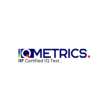Understanding Average IQ Across Age Groups: Exploring Norms, Ranges, and Implications
Average IQ Across Age Groups

Introduction
Intelligence is a multifaceted assemble that modifications as individuals develop through one-of-a-kind levels of lifestyles. The idea of IQ (Intelligence Quotient) tries to quantify this complicated trait and provide insights into an individual's cognitive skills. However, the average IQ can range across distinctive age agencies, and it's miles important to explore those variations to gain complete information.
In this in-depth exploration, we can delve into the average IQ for every age variety, inspecting the norms, degrees, and implications associated with IQ scores. We will discover how IQ modifications over time, speak elements that affect IQ at distinctive a long time, venture not unusual misconceptions, and address barriers in using IQ as the only indicator of intelligence. By the end of this text, readers may have a clearer understanding of the nuances surrounding IQ rankings throughout numerous age groups.
Understanding Average IQ: Norms and Interpretation
To start our exploration, allow us to define the average IQ rankings across distinctive age stages. It is crucial to word that IQ tests are commonly standardized on representative populations, and rankings are mentioned on a bell curve distribution, with a mean of one hundred and a popular deviation of 15. This means that the majority of the populace falls inside the common variety, with fewer people having rankings under or above the common.
Average IQ Scores by Means of Age Range:
Infancy and Early Childhood (zero-3 years): IQ checking out isn't always commonly conducted for the duration of this era, as the cognitive skills of toddlers and infants are nevertheless growing rapidly. Instead, developmental milestones and exams are used to track development.
Preschool Age (3-5 years): IQ checking out during this age variety is restricted because of the challenges in measuring cognitive abilities in younger kids. However, positive tests, which include the Stanford-Binet Intelligence Scales for Early Childhood, can offer estimates of cognitive functioning.
Elementary School Age (6-12 years): As children enter formal schooling, IQ trying out becomes greater popular. Average IQ rankings for this age range typically fall in the variety of 90 to 110, with versions depending on cultural and socioeconomic elements.
Adolescence and Teenage Years (13-19 years): Average IQ scores in the course of youth and teenage years tend to stabilize, ranging from 90-110. However, it is important to not forget that man or woman cognitive improvement can also nevertheless be ongoing all through this period.
Young Adulthood (20-40 years): IQ rankings generally tend to heighten in the course of younger maturity, with common scores starting from 100 to 120. This is a period of cognitive maturity, wherein people have reached their cognitive ability and have won great life reviews.
Middle Age (40-60 years): IQ ratings for the duration of centre age are generally stable as compared to young adulthood, generally falling within similar levels of 100 to 120. However, a few cognitive declines might also start to emerge in later years, particularly in processing pace and memory.
Older Adulthood and Seniors (60+ years): As individuals input older maturity, there can be a gradual decline in IQ ratings. However, this decline isn't always experienced using anybody, and some people maintain their cognitive talents nicely into their senior years.
It is crucial to observe that those common IQ ratings are approximate and may vary primarily based on factors including cultural history, education stage, socioeconomic popularity, and man or woman differences.
Interpreting IQ Scores: Defining Low, Average, and High IQ

While we have mentioned the average IQ ratings for different age ranges, it is also crucial to apprehend how IQ scores are interpreted. The following degrees are normally used to categorize IQ rankings:
Below 70: Very Low IQ - Individuals with IQ ratings underneath 70 are taken into consideration to have high-brow disabilities. They might also face extensive demanding situations in adaptive functioning and require help and lodges.
70-84: Low Average IQ - Individuals in this range have IQ rankings that fall beneath the average range but are not considered to have high-brow disabilities. They may additionally face some problems in certain cognitive responsibilities however can nonetheless feature independently.
85-114: Average IQ - This range consists of the bulk of the population, encompassing people with average cognitive competencies. They can usually manage everyday tasks and perform thoroughly in instructional and professional settings.
115-129: High Average IQ - Individuals with IQ rankings in this variety have cognitive capabilities above the common variety. They may additionally show off strengths in positive areas and perform distinctly well in unique duties.
130 and above High IQ - Individuals with IQ scores in this range are considered to have high intelligence. They are regularly called "talented" and might have exceptional talents and abilities in numerous cognitive domain names.
It is important to recognize that IQ ratings provide a restricted photograph of a man or woman's cognitive abilities and should be considered along with other elements, along with motivation, creativity, and emotional intelligence, to get more holistic information about intelligence.
Factors Influencing IQ at Different Ages
Various elements can influence IQ rankings at one-of-a-kind a long time, contributing to versions in average rankings. Some key elements include:
1. Genetic Factors: Genetics play a significant role in shaping one's intelligence. Research suggests that genetic factors contribute to about 50-80% of IQ rating variations. However, it is crucial to be aware that genetic impacts have interaction with environmental factors to shape cognitive competencies.
2. Environmental Factors: Environmental elements, such as socioeconomic repute, schooling, vitamins, and circle of relatives guide, can have an impact on IQ scores. Children from socioeconomically deprived backgrounds can also face boundaries that can affect their cognitive improvement and IQ scores.
3. Education and Intellectual Stimulation: Quality schooling and highbrow stimulation can decorate cognitive abilities and contribute to higher IQ ratings. Access to instructional sources, stimulating getting-to-know environments, and supportive teachers can positively have an impact on IQ in diverse age corporations.
four. Health and Well-being: Physical and mental health could affect IQ scores. Adequate nutrients, exercise, and usual well-being help cognitive improvement and may contribute to the most effective IQ results.
5. Cultural and Linguistic Factors: IQ ratings can be stimulated with the aid of cultural and linguistic factors. Standardized IQ tests may additionally replicate the cultural backgrounds and reports of the populace on which they had been advanced, potentially leading to cultural biases in scoring.
Limitations and Considerations in Interpreting IQ Scores
While common IQ ratings and their interpretation provide precious insights, it is critical to acknowledge the limitations and considerations related to IQ checking out:
1. Measure of Intelligence: IQ exams investigate unique cognitive competencies but do not seize the entirety of human intelligence. Other elements together with emotional intelligence, creativity, and realistic capabilities aren't competently measured using IQ checks.
2. Cultural and Ethnic Factors: IQ exams have confronted criticism for capacity cultural biases. They can also mirror the biases and reports of specific populations, main to unfair blessings or risks for people from one-of-a-kind cultural backgrounds.
3. Variability and Individual Differences: IQ scores are influenced by using numerous complicated elements, and man or woman variations can substantially affect outcomes. It is crucial to remember the broader context and now not depend completely on IQ scores while assessing an individual's capabilities and capability.
Conclusion
Understanding average IQ scores throughout exceptional age corporations presents valuable insights into cognitive abilities at diverse tiers of existence. These scores, in conjunction with their interpretation, can help in knowledge cognitive improvement, figuring out strengths and weaknesses, and tailoring interventions. However, it's miles vital to technique IQ ratings with caution, considering the vast variety of factors that influence intelligence and recognizing the constraints of IQ exams as the sole degree of intelligence.
By delving into the nuances of average IQ scores, we will benefit from a greater complete understanding of the man or woman's cognitive capabilities and foster a holistic approach to supporting intellectual improvement across diverse age businesses. Let us continue to discover, question, and project our expertise of intelligence, growing an extra inclusive and nuanced knowledge of human potential.
About the Creator
IQ Metrics
IQMetrics.org is a comprehensive platform offering insightful resources on IQ testing, assessments, and understanding intelligence metrics.
http://iqmetrics.org






Comments
There are no comments for this story
Be the first to respond and start the conversation.